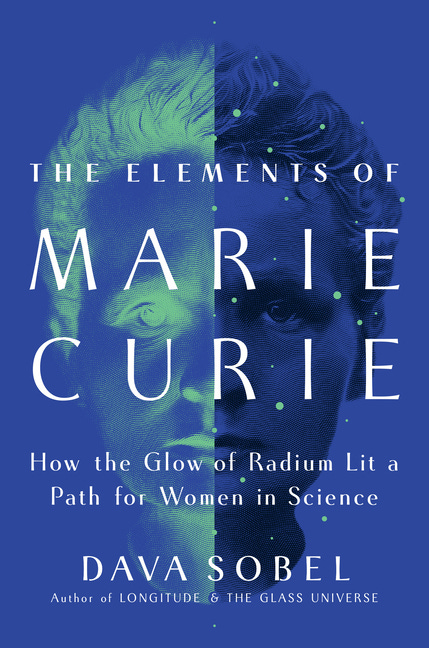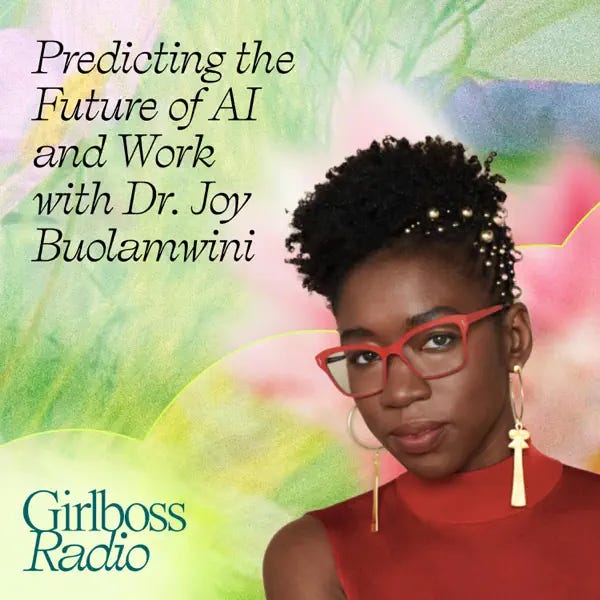Issue 14: Women of Science Oct '24
News, profiles, research, reviews, recommendations on all things women in science
Welcome back to another October edition of WOSc - the weekly newsletter covering all things women in science 𝞹📈🧠📚
🔬 What to expect?
All subscribers receive the free edition covering highlights in media, awards and discovery as well as things to read, see and watch re: women in science. Drops every Tuesday. Tell your friends:
Thank you for joining. Enjoy the read.
A quick run-down of this issue:
Abstract & Intro: News and updates on all things women of and in science
Materials, Methods, Discussion: An op-ed: What on earth is happening to women in science?
Conclusions & Further Reading: Our media & content recommendations for your weekAbstract & Intro
Your rundown of headlines, news, notes & media snippets re: women of science
📌 Healthtech: Emma Watson invests in reproductive health company Hertility
Actress Emma Watson has made a previously undisclosed investment into the women’s health company Hertility, bringing its total funding to more than USD$14 million.
📌 Healthtech: Maven Clinic Announces $125 Million Series F Round of Funding to Chart the Next Decade of Innovation in Women's and Family Health
New funds will fuel growth of Maven's end-to-end platform, with a focus on scaling its fertility & family building program, now the largest fertility benefits provider globally 🤰
📌 Women’s Health: Melinda French Gates launches a $250 million women’s health fund
Melinda French Gates is shedding more light on her $1 billion “Action for Women’s Health” plan to promote women’s rights, announcing a new $250 million fund to improve women’s mental and physical health this past week.
📌 Oncology: Millions Of Women In The UK Haven't Been Tested For This Crucial Breast Cancer Risk Factor
Data suggests that as many as four million women over the age of 40 in the UK could have this breast cancer risk factor.
📌 Healthtech: Experiences and impacts of side effects among contraceptive users in the UK: exploring individual narratives of contraceptive side effects:
While contraception is widely used, there’s limited research on how women experience side effects. This study by Dama Health aimed to fill this gap by gathering personal stories from 337 women aged 18-35 in the UK.
📌 AI: London-based startup Anam secures £1.75M pre-seed round
Founded in 2024 by Caoimhe Murphy and Ben Carr, Anam develops advanced AI-powered "digital humans" that engage in real-time, lifelike conversations, providing a more personalized and natural experience than traditional chatbots.
Pivotal's Action for Women's Health is a $250 million global open call that will fund organisations working to improve women's mental and physical health.
📌 Healthtech: $4.5M in Funding to Bridge Reproductive Care Gap
LEVY Health, an innovator in the field of reproductive health technology, has raised $4.5 million led by San Francisco-based venture firm XYZ Venture Capital, with additional participation from Atlantic Labs and Possible Ventures.
📌 Healthtech: Women’s health tech ‘less likely’ to get funding if woman is on founding team
Research also shows pitches from female founders less likely to succeed if using phrases such as ‘women’s rights’.
& in other brief news:
Materials, Methods, Discussion
This week - what’s happening to women’s funding?
It’s been a pretty bleak week for women in science. The headlines are enough to make even the most optimistic glass-ceiling smasher take a deep sigh. First, the latest reports have revealed that more women than men are leaving scientific research careers, while women-led healthtech startups are significantly less likely to receive investment. And just to add salt to the wound, not a single STEM-focused Nobel Prize awarded went to a woman this year. So, we’re asking: what on earth is going on?
Frustration is brewing within the scientific community. Many are outraged by the glaring absence of women among this year’s Nobel Prize winners, particularly when two women who made critical contributions to the research awarded in physiology or medicine were passed over. It’s not just a bad year – it’s symptomatic of something deeper. Experts in gender bias are pointing to a broader issue: the systemic barriers women face in science, which make for an uneven playing field. The result? Science as a whole suffers, deprived of the full spectrum of talent and perspective.
Meanwhile, the news for women in tech is no less disheartening. The US charity Women Who Code, which boasted a global membership of 145,000, abruptly closed its doors this year, citing financial difficulties. Girls in Tech, another prominent US non-profit, followed suit in July after 17 years of advocating for women in technology. Its founder, Adriana Gascoigne, pointed to dwindling funding as the main reason for its closure, highlighting a worrying trend: the initiatives designed to support women in STEM are running out of steam, just when they’re needed most.
Closer to home, the UK’s Tech Talent Charter – an initiative aimed at increasing diversity in tech – also shut down this summer, laying the blame squarely on tech companies for “quietly quitting” their commitments to equality, diversity, and inclusion (EDI). With industry support for these causes fading into the background, it’s hard to ignore the feeling that progress is being quietly rolled back.
But it’s not all doom and gloom. An investigation into academic hiring in the biological sciences has found that women are actually more likely than men to receive job offers for academic roles. So, there’s hope: women clearly want to break into these fields. The ambition is there. The question is, how do we ensure they stay?
In a world where women are still battling for recognition and equal opportunities, it’s easy to feel disheartened by these setbacks. But perhaps this moment of reckoning is exactly what’s needed to reignite the conversation – and remind us that while some doors may have closed, it’s on us to keep finding new ways to open them. After all, the ceiling might be glass, but that doesn’t mean we can’t shatter it.
Conclusions & Further Reading
More links & signposts for you to enjoy this week…
The Written Word:
🚀 Start me up: Transforming women's health by supporting scientific entrepreneurship
👩 The £50m women helping others build businesses: This article from The Times shines a light on those women who have founded or co-founded businesses that have pushed through the £50 million mark and remain at the helm, including Anne Boden, founder of Starling Bank, and Chrissie Rucker, founder of The White Company.
💊 Experiences and impacts of side effects among contraceptive users in the UK: exploring individual narratives of contraceptive side effects: While contraception is widely used, there’s limited research on how women experience side effects. This study by Dama Health aimed to fill this gap by gathering personal stories from 337 women aged 18-35 in the UK.
🩸 Fibroids affect up to two-thirds of women, so why don’t we know more about them? Around two-thirds of women will develop a fibroid at some point in their lives, but what exactly are they and what causes them?
⚕️The economic case for investing in women's health: A report by the NHS Confederation, Create Health Foundation and London Economics highlights the economic imperative of investing in women services.
💃 22 women making moves in healthcare: Becker’s Hospital Review reveal their annual list for women in leadership this year
🧪 The Elements of Marie Curie: How the Glow of Radium Lit a Path for Women in Science: BookMarks reviews a chronicle of the life and work of the most famous woman in the history of science, and the untold story of the many young women trained in her laboratory who were launched into stellar scientific careers of their own.
Pods & vids:
🎙️ Girlboss Radio: Predicting the Future of AI and Work With Dr. Joy Buolamwini
AI is everywhere. So what does that mean for jobs? Are they all going to be obsolete in the next 10 years? And how can we prepare ourselves—and our careers—for the future?
In this episode, Dr. Joy Buolamwini answers all of your most pressing AI questions. She is the founder of the Algorithmic Justice League, an award-winning researcher, and a “poet of code.” As the author of the national best-selling book Unmasking AI, Dr. Joy has dedicated her career to uncovering and addressing racial and gender biases in artificial intelligence. With degrees from both Oxford and MIT, and recognition as one of Forbes’ Top 50 Women in Tech, she shares invaluable insights and advice for navigating the complexities of this ever-changing technology.
Opportunities:
Do you work in health innovation? Are you feeling the itch for a career shift but unsure where to begin? Or maybe you’re curious about the latest trends pushing and pulling people in health tech to explore new directions? Look no further – One HealthTech London has got you.
📍 Date: Wed, 20 Nov, OHT London
Intelligence Squared: The Teen Mental Health Crisis and How Adolescence Shapes Us
On Tuesday November 19, Foulkes will come to Intelligence Squared to share surprising insights from her recent book Coming of Age: How Adolescence Shapes Us, gathered from her research as an academic psychologist at the University of Oxford. She will explain why, in contrast to psychologist Jonathan Haidt, she disagrees with blanket bans for smartphones as a solution for improving teen mental health.
📍 Date: Tues, Nov 19, London & online webinar
That’s all for this issue!
Thank you for reading: The WoS mission is to support, share and promote the innovative and groundbreaking work that has been and continues to be done by women across all scientific disciplines, and to empower and inspire the next generation of female leaders in the field.
If you liked it, here’s another reminder to share us with your friends, network, neighbours, coffee baristas ☕ etc.:













